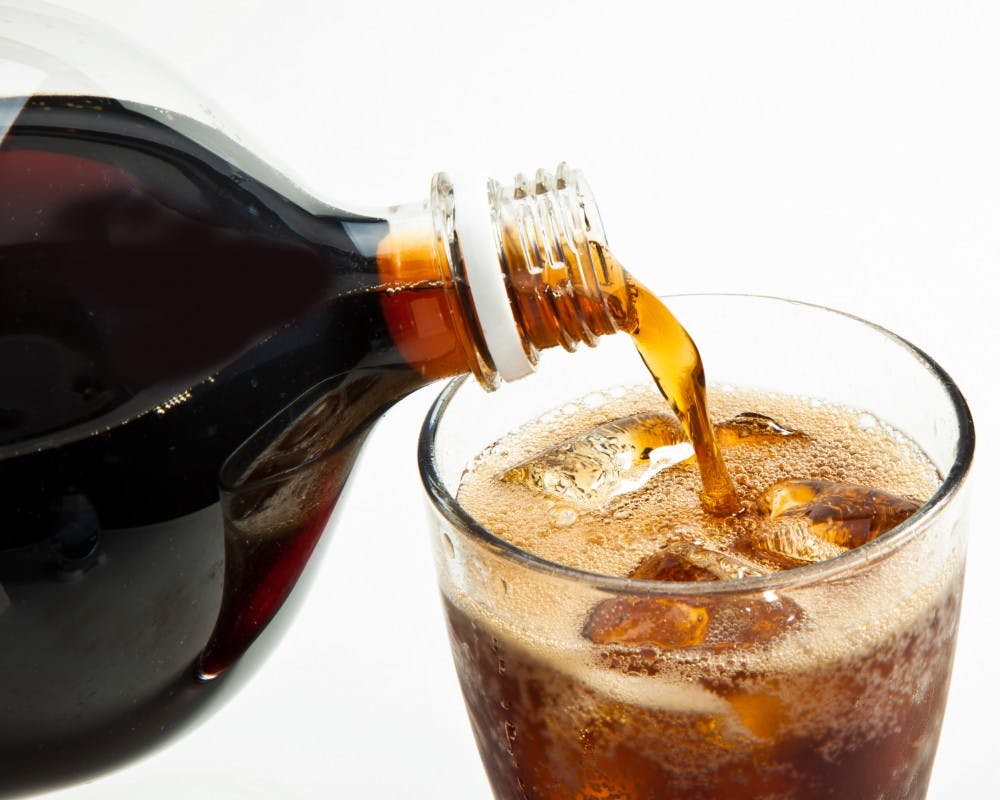A study from the University of California, Berkeley revealed that, three years after the start of a tax on soda, Berkeley’s low income neighborhoods dramatically decreased their consumption of sugar-sweetened beverages by 52 percent.
We cannot yet generalize that these results would work for the entire country, but if other U.S. cities test out soda taxes of their own and see a similar outcome, then we will be able to make a strong case for how beneficial soda taxes are, especially when addressing our country's, and Indiana's, public health.
Soda taxes are particularly controversial because they appear to be the government overstepping its bounds. Why should the government tell anyone what to drink? At first glance, that’s a fair point.
However, as mentioned earlier, when you note the detrimental effects of sugary drinks, you realize that this really is a problem of public health. In particular, a large review published in the online journal "Obesity Facts" looked at 30 studies examining sugar-sweetened drinks. The overwhelming majority found a “positive association” with obesity, among both children and adults.
The Harvard School of Public Health’s “Sugary drinks and obesity fact sheet” reports that four massive studies suggest these drinks “increase the risk of obesity, diabetes, heart disease, and gout.”
Nationally, the Centers for Disease Control and Prevention estimated the medical costs for obesity were $147 billion in 2008. Not only that, but the annual cost of employees missing work because of obesity-related problems was between $3.38 billion and $6.38 billion.
Locally, Indiana was ranked the 12th most obese state in 2017, with the adult obesity rate being 33.6 percent.
Sugary drinks are not a problem incurred solely by the individual who drinks them. They are a problem affecting everyone, and that is why we need to devise ways to reduce our consumption of this liquid candy.
Fortunately, the new Berkeley study suggests a soda tax is a viable solution. Soda consumption went down, and water consumption went up in 2015, when the Berkeley study began. That’s just what we need.
"They are one of many ways to make really clear what we value as a country," the researchers said, in reference to taxes. "We want to end this epidemic of diabetes and obesity, and taxes are a form of counter-messaging."
The evidence of the tax’s effect on Berkeley’s drinking habits is particularly strong given that two other California cities, Oakland and San Francisco, which did not have soda taxes during the study’s interval, saw very little change in their consumption of sugary drinks.
Low-income communities saw a significant drop in consumption, which is good news. They often experience diet-related health problems at higher rates because they often have less access to grocery stores and healthy food. Notably, low-income neighborhoods face higher rates of childhood obesity. It seems the soda tax incentivized them to opt for water over the sugary drinks that they used to have more access to.
However, the UC Berkeley study does have its limitations. The researchers used street-intercept surveys to collect their data, meaning that they polled people at intersections of high foot traffic, so the sample is not randomized.
Additionally, it is still too soon to say if other cities would observe a similar effect.
That is why other cities ought to test out soda taxes of their own. Even one year of the tax would be enough to know if it was working — just one year into Berkeley’s soda tax, the same researchers already observed a 21 percent drop in sugary drink consumption.
Bloomington could be one of those cities. We already have researchers here who could conduct a study of our own, so we could get started immediately.
If we and other cities show that the tax really works, then politicians from across the spectrum should support it in the name of improving public health.






